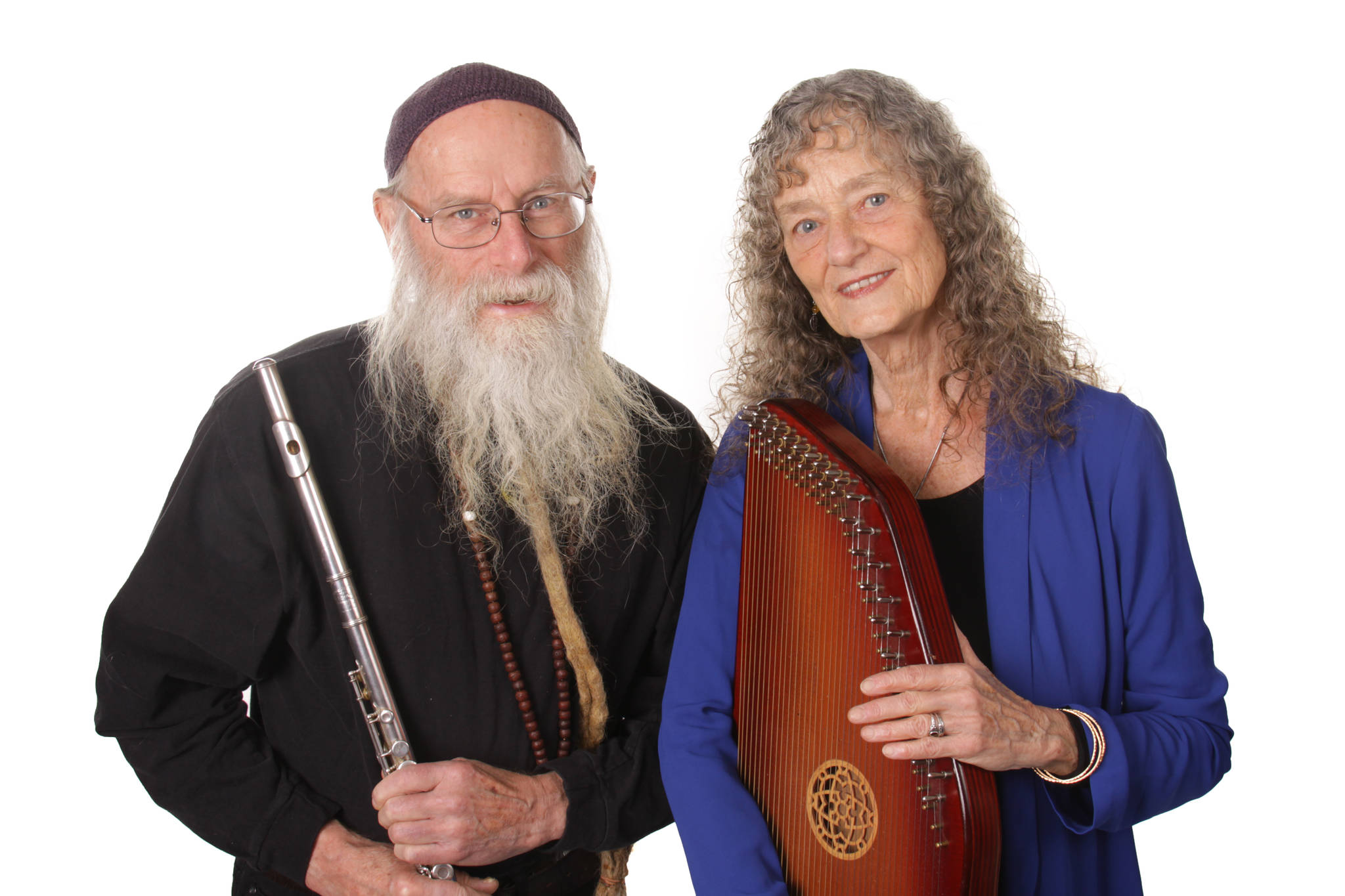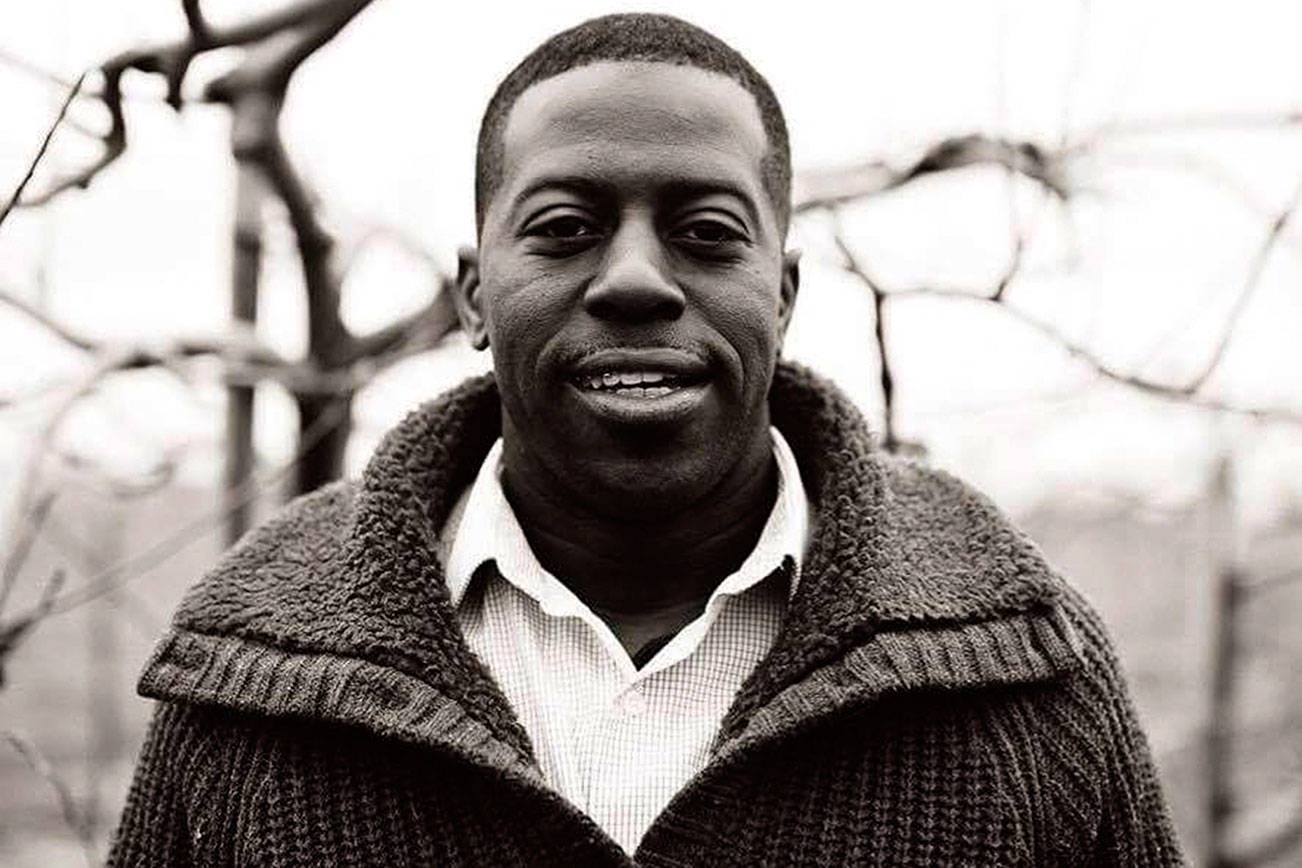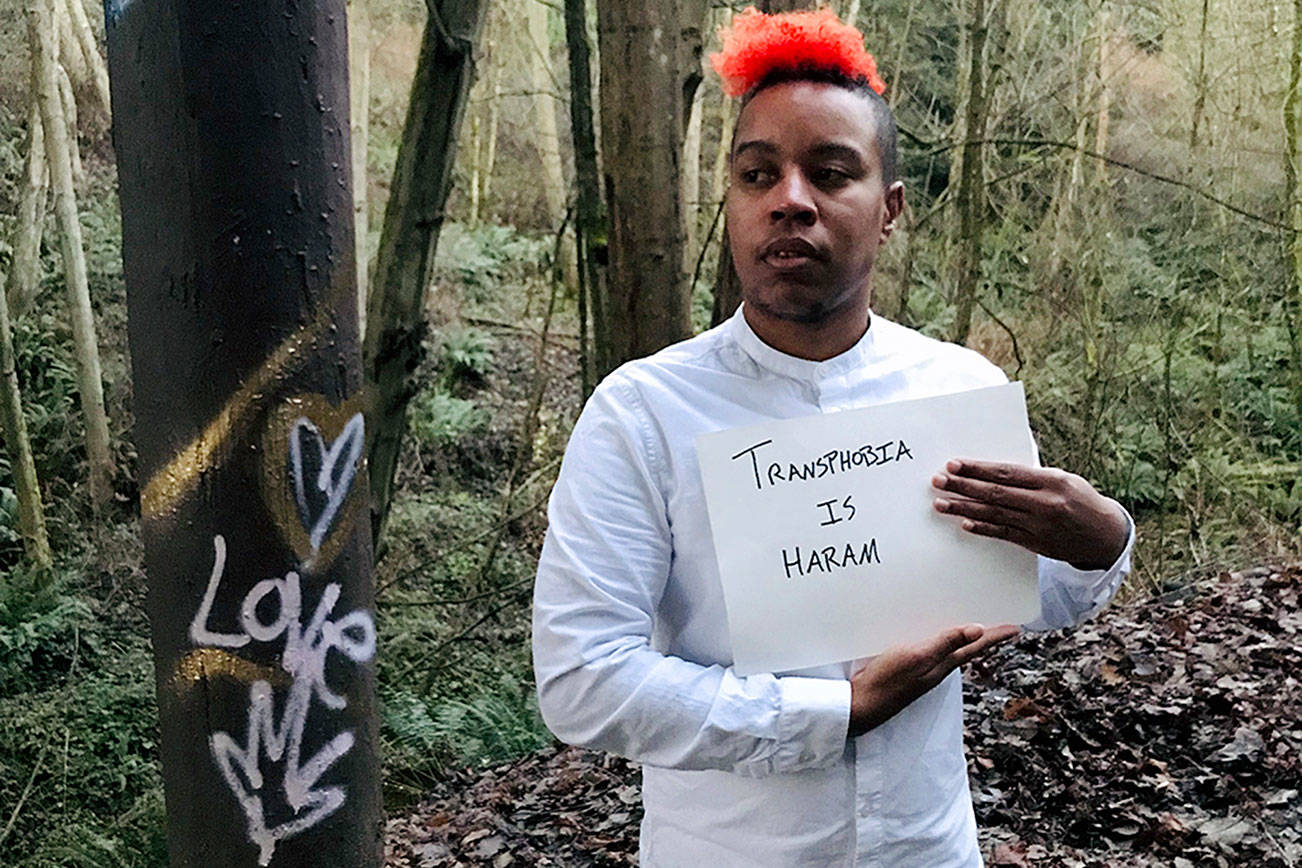A little yellow house sits on a patch of land about 30 minutes outside Bellingham. A few dozen feet away, the frosty Nooksack River rushes by. Thick green splotches of moss run up and down tree trunks, and the air is free from cell service. Residing in that little yellow house are Dean and Dudley Evenson, founders of the wildly successful musical business Soundings of the Planet, whose elongated, pastorally soft melodies, such as “Mending Your Own Mind” and “Gentle Season,” you’ve likely heard on a massage table or in a yoga studio without knowing their origins.
Inside the little yellow house are also instruments—a baby grand piano, a harp, and some drums dangling from an overhang. And often music is playing; soft songs rich with strings move almost effortlessly like wind through leaves. On a flat-screen television videos play: birds landing on branches, a frog kicking its legs in clear water. This is the ambient, naturally focused world that Soundings, and its two founders, manifest.
The business began formally in 1979 when the duo created their record label outside Tucson, AZ, which has since gone on to sell millions of albums—the most famous of which include Chakra Healing, Ocean Dreams and Healing Sanctuary—and enjoy a similarly high number of digital streams. But in another way, the project began in 1968, the day Dean moved into Dudley’s apartment building, taking the flat she’d been using as a low-key, makeshift dance and yoga room.
Dean, master’s in molecular biology from the University of Maine in hand, had come to New York’s East Village to learn a trade in the music business. He was already an accomplished flutist, but now wanted to become an engineer—“the guy behind the board reminding Eric Clapton his guitar is out of tune,” explains Dudley, 73, looking fondly at her husband, 72, whose long white beard is marked by a thick dread down the middle.
The day the two met, their relationship took off. Meeting young in the tumultuous 1960s provided a lot of inspiration for a new couple in search of art and spirituality. At the time, Dean, along with the music trade, found himself studying filmmaking and Dudley studied photography. The two were fascinated with the newly invented portable video camera. Its freedom and populist aspect, Dudley says, provided the couple’s first window into a larger purpose. “We were all about trying to put the tools of media in the hands of the people,” she explains. “We believe everyone has a valid perspective and point of view. We wanted to use the video camera to introduce people to each other.”
Dean and Dudley began to travel, video camera in hand, finding gurus, speakers, and eventually Native American elders who shared with them messages about the earth as an actual living being. “That’s when we really woke up,” says Dean. So the two began to explore the concepts of balance, harmony, and nature. This search led them to spiritualist Ram Dass, whose lecture Dean and Dudley later recorded. They began selling cassette copies of this lecture at swap meets and craft fairs around the country, learning an important lesson: Cassettes were much easier to distribute than cumbersome reel-to-reel videotapes. Not long after, Dean began recording Soundings’ first album, Desert Dawn Song. He slept overnight in the desert outside Tucson and recorded “the birds waking up just as I woke up,” he says. “That became the base track. We used it as the inspiration to play the music.”
Quickly, the Soundings nature recordings became popular at hippie venues and wellness conferences early in the New Age movement, where the couple mostly sold their work to those interested in massage, yoga, and meditation. “Our motto was peace through music,” Dudley says. “People wanted more and more of it. It helped them relax and deal with stress and chronic pain. A lot of music comes from an ego space, people wanting recognition. But our music comes from an intention of peace.”
It should not be forgotten that Dean Evenson—flutist, engineer, and tinkerer—is also a scientist. One aspect of the world he most appreciates is the notion of vibrations, his understanding of which has influenced Soundings recordings. It’s a bit complicated, but the basic idea is that all things can be reduced to vibrations. “Everything has its own signature vibration,” Dean says. Using a scientific principle that bodies can vibrate at the same rate together, Dean composes the basic music for the recordings. The melodies rely on a subdued, even inaudible, quality that relaxes the body’s vibrations and puts it in tune with the low, inaudible hum of nature, otherwise known as the alpha state. “It’s very subtle,” Dean says. “You don’t notice it that much.” In this way, the soft blanket-like music (composed without refrains and utilizing tremolo) carries Soundings’ signature soothing resonance.
In the following decades, the founding parents of Soundings eventually released some 80 albums (the most recent in November), some featuring accompanying musicians (at one point Soundings employed 22 people). They’ve also produced countless videos, which they share on their YouTube page. The business grew in part from their regular touring and performances at the conferences (some alongside Deepak Chopra and Larry Dossey); their family did too with the introduction of three children. They all traveled the country in a bus selling tapes and CDs. Eventually, though, the Evensons landed in the Pacific Northwest, where Dean and Dudley bought a few homes, including the little yellow one.
In the late 1990s and early 2000s, however, Soundings endured the nearly devastating cratering of the music business, when CD sales plummeted after the introduction of MP3s. “There was a lot of tightening of our belts,” Dudley recalls. But in the last seven years that has flipped, thanks to digital streaming. With more and more listeners finding their music online, Soundings has flourished again—almost beyond belief.
“We’re doing very well,” Dudley nods. Many of the streams come from Spotify and Pandora, which offer sizable direct deposits. And an upcoming project, which will likely see the light of day this year, will feature Bellingham resident Tim Alexander, drummer of famed rock band Primus (which Dudley first called “Preemus” before Dean lovingly corrected her). The project is yet another example of the effort the couple continues to put in well into their 70s. Dean and Dudley, who have always dreamed of helping people relax and heal through art, know success comes not only from spiritual inspiration. “You do a dream,” Dudley asserts. “We were ready and willing to do the hard work.” music@seattleweekly.com








